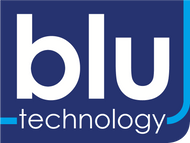A TDS meter reads the total concentration of dissolved solids in a liquid, including minerals, salts, and other substances. It measures the electrical conductivity of the solution, which is then correlated with the concentration of those dissolved solids.
While TDS meters are useful for measuring the overall dissolved solids in a solution, they do not provide specific information about individual contaminants or the desired minerals that should be present in drinking water. Some water filtration systems are designed not only to remove harmful contaminants but also to retain beneficial minerals that contribute to the overall taste and health benefits of drinking water.
A TDS meter measures the mineral content in water, and a high reading may mistakenly suggest poor water quality. However, this is because Blu Technology's water filtration devices deliberately retain the essential minerals, which are beneficial for overall health and help maintain an optimal pH balance.
Ensuring the quality of our drinking water is of utmost importance. However, relying solely on Total Dissolved Solids (TDS) readings may lead to misconceptions about water filtration systems. In this article, we will debunk these misconceptions, focusing on Blu Technology's state-of-the-art 3-stage water filtration systems. Not only do they preserve essential minerals, but they also enhance taste, promote health, and maintain optimal pH levels. Let's explore why TDS readings alone aren't the most reliable source for assessing water quality.
Generally, a TDS reading below 500 parts per million (ppm) is considered safe for drinking water. Keep in mind that specific guidelines may vary, so it's always a good idea to refer to local authorities or water quality standards for accurate information.
Filters vs. TDS Readings:
While the primary purpose of the 0.2-micron and sediment filters is to remove impurities that jeopardize your health, they may not significantly affect TDS readings. These filters prioritize water safety and clarity, rather than focusing solely on dissolved minerals. Remember, evaluating water quality requires a holistic approach beyond TDS measurements.
Sediment, 0.2-Micron Filters:
The sediment filter, which effectively removes unwanted particles. Blu Tech's 0.2-micron filter is responsible for eliminating microscopic impurities like bacteria and cysts.
Activated Charcoal Coconut Filter:
Blu Technology's grandual activated charcoal coconut filter is a remarkable component of their filtration systems. This filter efficiently removes chlorine, volatile organic compounds (VOCs), and unappetizing odors while enhancing the taste of your water. Although the minerals naturally present in coconut-based carbon may slightly increase TDS readings, rest assured, these minerals are beneficial to human health and do not pose any harm, plus the filter is hypoallergenic.
Further, if you don't soak the coconut filter before using it for the first time, it may potentially increase the TDS (Total Dissolved Solids) reading. TDS refers to the concentration of dissolved solids, minerals, salts, and other substances present in the water. Soaking the filter beforehand helps to eliminate any loose or excess carbon particles that could contribute to a higher TDS reading.
The Inadequacies of TDS Readings:
While TDS meters inform us about mineral content, they fall short in providing a comprehensive assessment of water safety for human consumption. TDS readings do not directly correlate with the presence of harmful contaminants such as bacteria, viruses, and heavy metals.
The Inadequacies of TDS Readings:
While TDS meters inform us about mineral content, they fall short in providing a comprehensive assessment of water safety for human consumption. TDS readings do not directly correlate with the presence of harmful contaminants such as bacteria, viruses, and heavy metals.
Blu Technology's 3-stage filtration systems stand out for their commitment to health and overall water quality. By effectively eliminating harmful contaminants while retaining essential minerals, these systems provide safe and great-tasting water with optimal pH balance. Blu Technology understands that water quality is a multi-faceted concept that goes beyond TDS measurements.
Additionally, ensuring RV and Camper Water Line Safety is essential:
For RV and camper owners, maintaining water quality is vital. Mineral buildup in water lines can affect TDS readings and potentially compromise the safety of your water. To prevent this, implement regular cleaning and maintenance practices, ensuring that your water lines remain free from stagnant water, debris, and bacterial contamination. By paying attention to these details, you can accurately assess water quality in your RV or camper. Blu Technology is now partnered with Sani-System and will be selling this product along with others that will help this situation and many others! We will premier this product with samples given out at the Hershey RV Supershow 2023.
Conclusion:
Basing water quality solely on TDS readings is insufficient and may lead to misinterpretations. Blu Technology's 3-stage water filtration systems provide comprehensive water safety and taste improvement by preserving essential minerals and balancing pH levels. In the case of RV and camper water lines, regular cleaning and maintenance practices are crucial to prevent mineral buildup and maintain accurate water quality assessments. Let's embrace a comprehensive approach to water quality evaluation and appreciate the benefits of Blu Technology's dedication to excellence in filtration systems.


Leave a comment